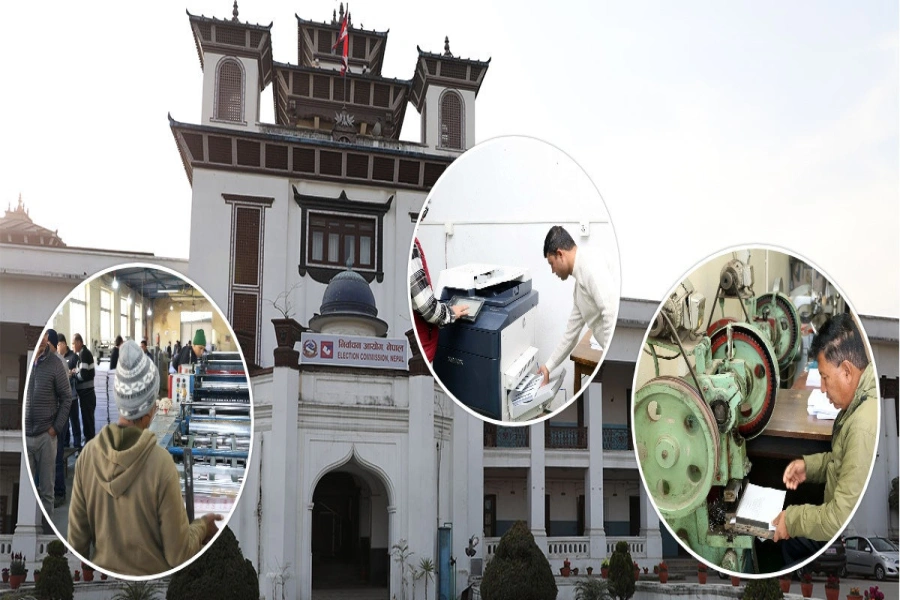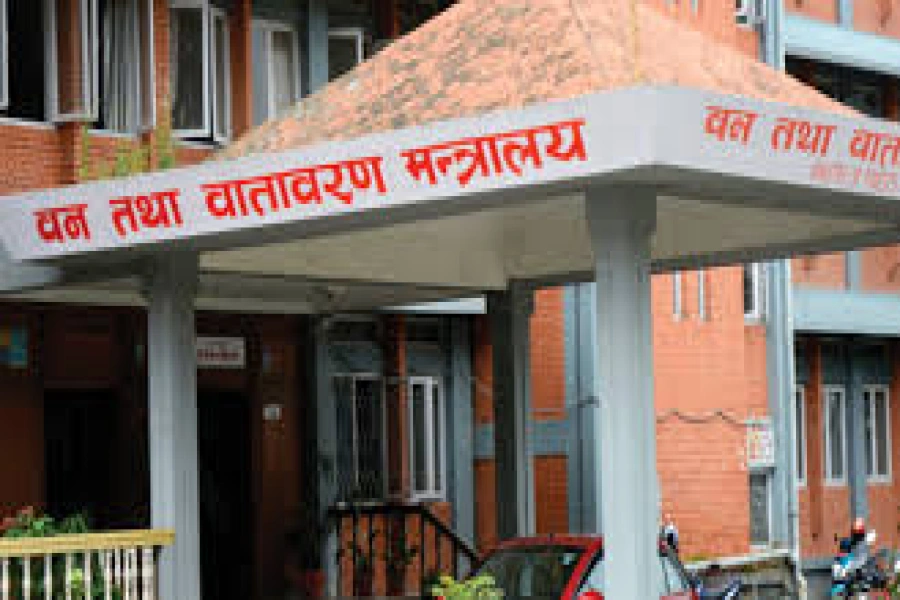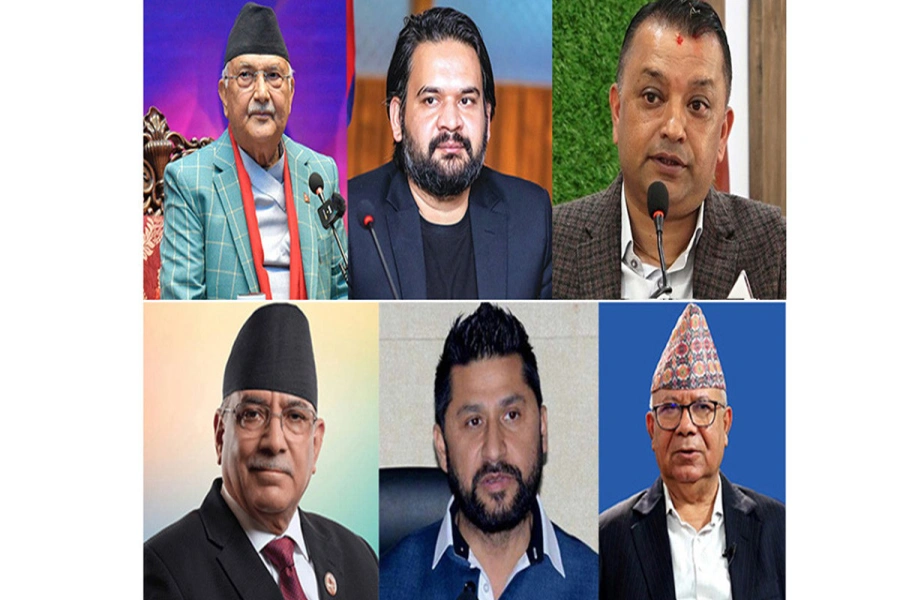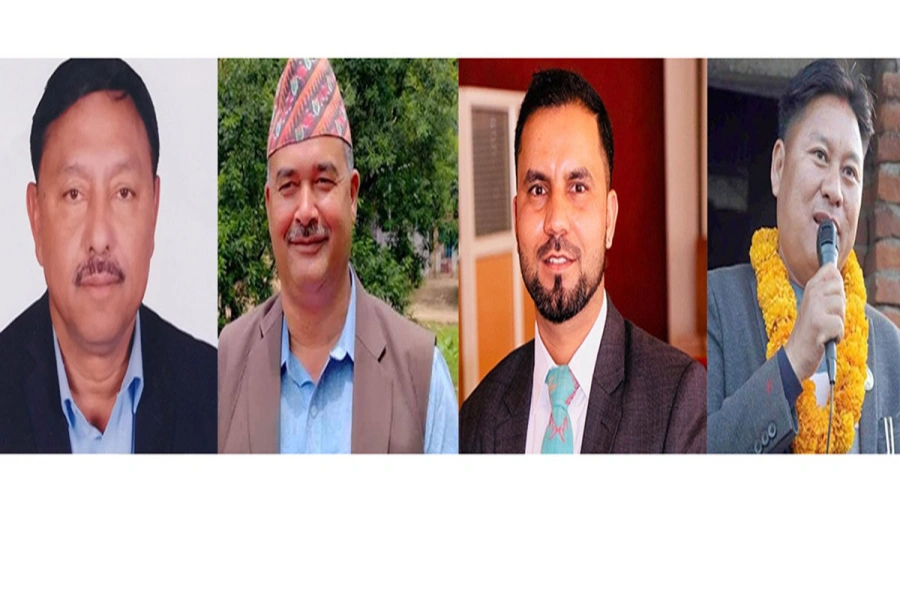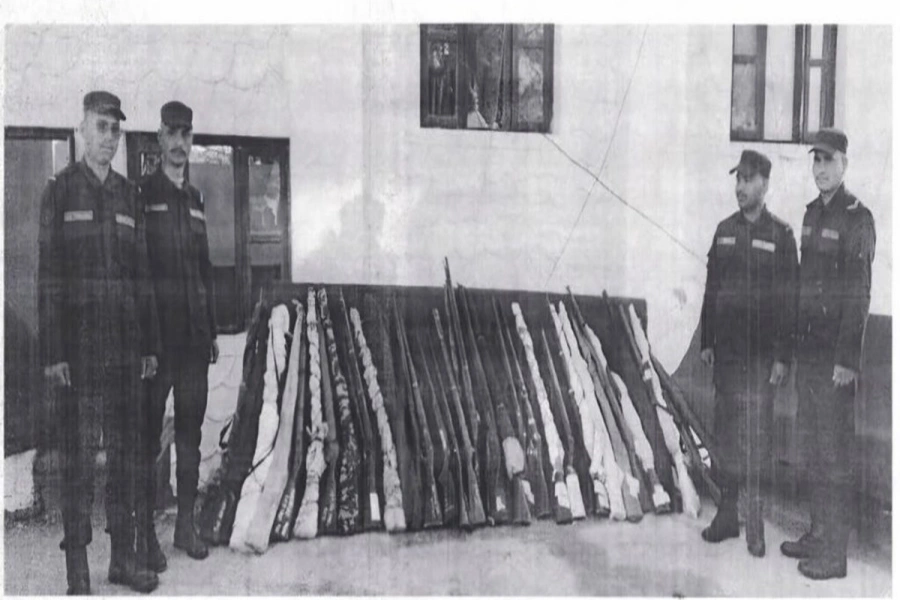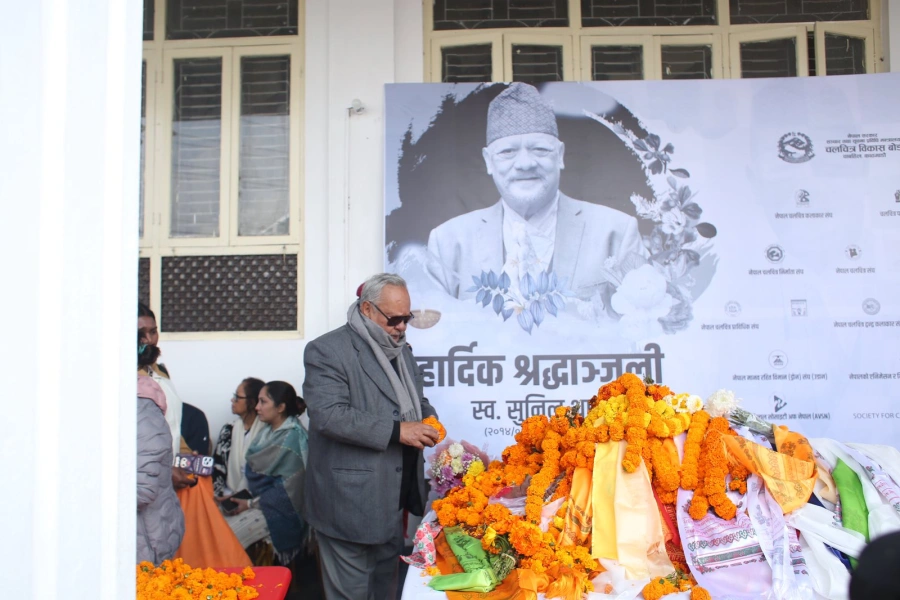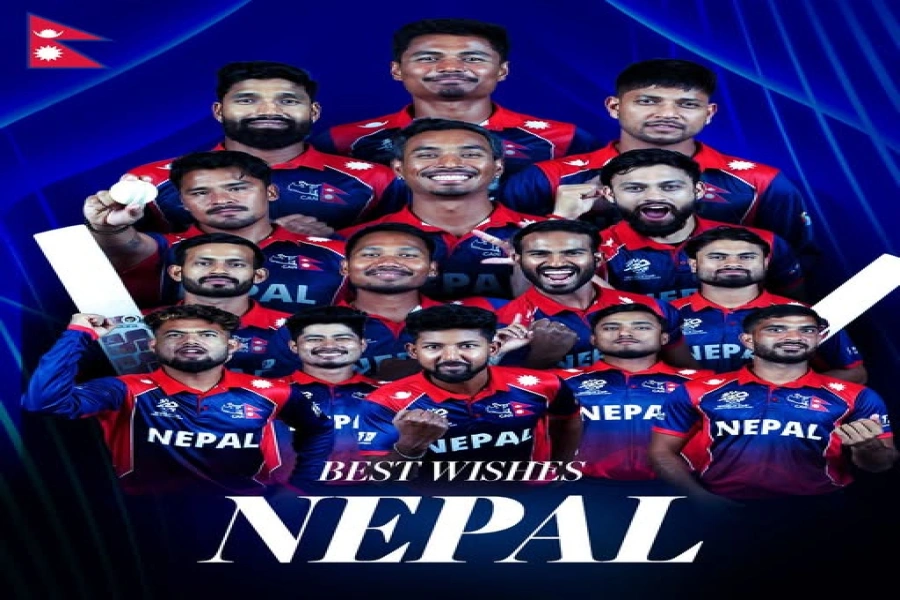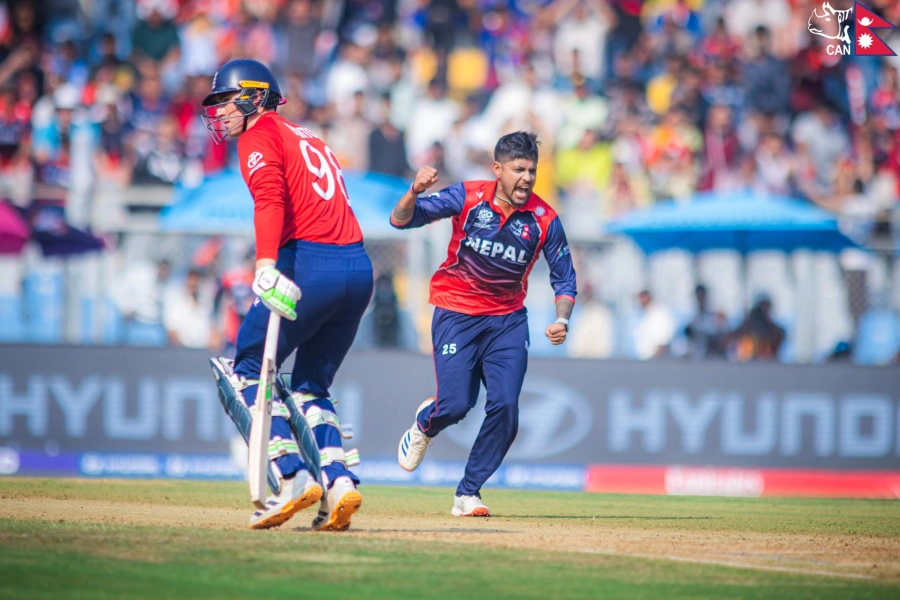The leaders of the three biggest parties in the country right now have firmly consolidated their powers and are virtually unopposed.
Three leaders have of late emerged all-powerful in Nepali politics as they control vital state organs, their nationwide political organizations as well as important social institutions. Recent developments also suggest that the chiefs of Nepali Congress, CPN-UML and CPN (Maoist Center) have further consolidated their hold on power.
Local elections too helped the three men and their parties, diminishing the role of over two dozen political parties elected in previous elections. This is something remarkable. Before that, from 1990 to 2005, political parties on the one hand and the royal palace on the other were the two key political actors. But with the end of monarchical system in 2008, political parties have had a free hand in managing state affairs.
UCPN (Maoist), Nepali Congress, CPN-UML, Madhes-based political parties and a number of identity-based groups emerged as major political actors after first CA elections in 2008. The 2013 CA elections resulted in some changes in their positions but the actors remained more or less the same.
The results of local polls in 2017 have again changed political calculus. UML, Congress and the Maoist Center have succeeded in further consolidating their hold, as fringe parties failed even in areas believed to be their core constituencies. Though election in Province 2 is pending, recent developments suggest a far from rosy picture for regional parties. Even if they do well, it won’t be sufficient to influence national politics.
Nepali intelligentsia often projects external influence as a major factor in Nepal’s politics. Leaders from major parties themselves accuse fellow leaders from competing parties of being puppets of external forces. External factor is certainly influential but not to the often-imagined extent.
In 2005, Nepali leaders agreed to end anti-monarchy protests only after laying definite ground for a republic and end of monarchy. They showed similar unity in 2015 at the time of constitution promulgation. Both the times international forces had jointly pressed for different outcomes but Nepali leaders didn’t budge.
Kushe Aunshi being observed today

Of late, the three leaders discussed above have succeeded to consolidate powers also within their respective parties. This is perhaps the first time that chiefs of the three largest parties are as powerful at the same time.
Dominant Deuba
Sher Bahadur Deuba, who became party president a year ago, is not a popular leader. But he has succeeded in establishing himself as a dominant leader in Congress, far more powerful than any other leader of the grand old party in recent years.
Intraparty feuds have always been a big headache for Congress president. Be it the bitter rivalry between the Ganeshman Singh-Krishna Prasad Bhattarai faction and the Koirala camp during the 1990s, or between GP Koirala and Deuba afterward, factional animosity has often weakened the party.
The beleaguered Sushil Koirala as party president faced a tough challenge from Deuba as the latter for years virtually ran a parallel organization within the party. It was obviously not easy for Koirala to undercut Deuba who had strong connections within the corridors of the power as a three-time prime minister.
Deuba, since he became party chief, has not been under any pressure of rival camps in the party. Not that Deuba is a popular leader but rival factions aren’t well organized. Though Ram Chandra Poudel is leading the rival faction, he isn’t wholeheartedly accepted by Koirala family. The new group of Krishna Sitaula and popular youth leader Gagan Thapa is still in its infancy.
Tactical Oli
When Madhav Kumar Nepal headed CPN-UML for 15 years until 2008, he somehow managed to muddle through. His opponents in the party used to say that “Madhav Nepal is our manager not our leader”. Oli ran a strong faction in the party at the time. Later, Jhalanath Khanal became party chairman but he too was a weak leader. It was Oli who gave tough challenge to both Nepal and Khanal. The two leaders had to strike compromise deals with Oli before making crucial decisions.
Unlike in NC, there is a strong and well-organized rival faction in UML since Oli became party chief three years ago. The opposition panel under Madhav Nepal has influential second-rung leaders.
The ever-tactful Oli, however, has been quite successful in managing factional differences. None of his big decisions have come into question. In the past the situation was just the opposite. Previously, UML leadership often took days to arrive at important decisions and even then rival factions would be divided. The then party chairman Khanal’s backing of Pushpa Kamal Dahal’s move to sack then army chief Rookmangud Katawal is a case in point.
Oli has brought about a complete change. His strong stand against the Indian blockade, his signing of historic deals with China, his clear and firm position against separating hills and Tarai areas while federating the country helped him win the adulation of general public. Interestingly, these moves were also supported by members of other rival parties, which is a rarity in Nepal’s context.
Emergence of UML as the largest party from local polls has further bolstered his position. His rivals in the party, who hated him for years, now support him as criticizing him now would be unpopular.
Leaders have stopped criticizing Oli even when he has broken his promises to his comrades. Three years ago Oli faction reached a deal with the party’s influential leader Bamdev Gautam. They promised to implement the policy of one-leader-one-position and make Gautam parliamentary party leader or acting party chief, in case of Oli becoming party chair or prime minister. With Gautam’s support Oli did become party chairman and prime minister, but Gautam hasn’t been given what was promised to him. And no one dares to raise this issue.
Oli, instead, has been leading the party with confidence, and is emerging as the strongest UML leader since Madan Bhandari.
Safe Dahal
As the head of the Maoist party continuously for over 25 years, Dahal is still the safest in comparison to heads of other major parties. The irony is that Dahal is safe despite the party’s disastrous performance in second Constituent Assembly elections in 2013 and local polls in 2017. Dahal has managed to consolidate his position as Baburam Bhattarai and Mohan Baidya, who had been consistently challenging his leadership, quit the party.
With their poor performance in both governance and social fronts and their inability to take clear stands on vital public issues, leaders of fringe parties have earned the moniker of opportunists. New groups have tried to stir a debate on the need for ‘alternative politics’ but they have failed to attract public support.
Nepal is among the most-politicized countries. In rural parts, one hardly finds a household without a card-carrying member of this or that political party. Our professionals are also being indoctrinated to an alarming level. Even competent professionals have to run to party headquarters as important appointments are all made along political lines.
The big three parties have weakened constitutional bodies such as CIAA and Election Commission by hand-picking their chosen candidates as commissioners. Of late, big parties’ penetration in sensitive institutions such as security forces and the Supreme Court has also become evident. Thus the three leaders have not only captured state organs but also nearly all important organs of the society.
Our elected representatives are collectively responsible for the country’s present situation and they should thus be collectively held to account. However, the tendency of our intelligentsia to blame particular political actors, instead of holding them collectively responsible, has helped divide the society. This, in turn, again plays right into the hands of the all-powerful three leaders who have become experts in using social divisions to their advantage.
Twitter @thiralalbhusal



